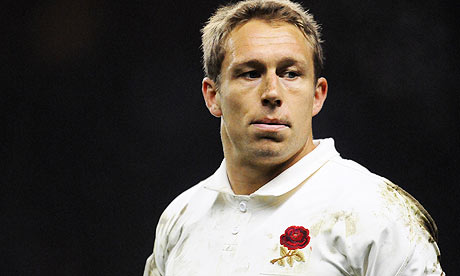
Jonny Wilkinson admitted last week to being fascinated by theoretical physics, a field which, apparently, attempts to explain natural phenomena. The England fly-half has long been regarded as a phenomenon but few have argued there is much natural about a player renowned for his obsessive work ethic, attention to detail and strength of character that has seen him return time and again from serious injuries.
Yet England's unnatural phenomenon is a strength and a weakness. A player opponents fear because he rarely misses goal-kicks and can drop goals with either foot, he has been at his most assured in general play when armed with a more instinctive player, such as Mike Catt and Will Greenwood in the years leading up to England's World Cup success in 2003, but far less so in the days since.
Against Wales on Saturday it was Toby Flood who inspired most of England's few back moves, not Wilkinson. The No10 only passed the ball five times in the match, whereas he kicked 14 times. Two of the passes came in the opening couple of minutes and he did not make one pass in the final 38 minutes as England defended a healthy lead. The scrum-half, Danny Care, was England's tactical hub: he made 38 passes, and only 15 of them were to his outside-half as he used his forwards to attack the gainline. Remarkably, Wilkinson only touched the ball twice in the third quarter of the match.
It contrasted with the opening Six Nations match against Wales at Twickenham in 2008. England were again defending a lead when Wilkinson threw out a long pass deep in his own half to Danny Cipriani which went over the replacement's head. It gave Wales the position from which they scored their first try on their way to victory. After England went 17 points ahead last Saturday, every time Wilkinson touched the ball, he kicked it.
England had been criticised for playing Wilkinson deep last November, when they scored one try in three Tests. They struggled to get over the gainline and by the final match, against New Zealand, they abandoned the attacking ploy of using Shane Geraghty at inside-centre and replaced him with a basher, Ayoola Erinle.
"England came under pressure when they played Jonny deep in the autumn," said Neil Jenkins, the Wales kicking coach who was pitchside at Twickenham on Saturday. "They took a lot of criticism and Jonny came under some flak, but he is such a talented player, big tackler and proven match-winner with the temperament for the big occasion that it was always going to be about finding a system that accommodated him.
"They pushed him up against us [on Saturday] and he played a lot flatter. They tweaked their tactics from the autumn, and Flood, a clever footballer in Flutey's mode, was a help to him. England clearly want to offer an attacking threat and it is difficult to do so from deep. You have to play close to the gainline.
"England kicked a fair amount of ball away but I expect them to run more as the tournament goes on. Jonny is one of the best goal-kickers the game has ever seen and England will adopt the system that best suits him. He does give them direction and Martin Johnson, quite rightly, has a lot of faith in him."
England's three tries came after Wales had been in possession. Wilkinson was involved in the first two, supplying a pass to Ugo Monye after Care's quickly taken free-kick in his own half that set up the position from which the home side scored at the end of the opening half and then setting up the ruck that provided Care with the opening for the second.
"It was a guessing game when we went into camp who England would pick at scrum-half," said Jenkins, a team-mate of Wilkinson on the 2001 Lions tour to Australia. "Care varied his game, kicked pretty well and England chased hard, putting our catchers under pressure. They slowed things down in the rucks and they got their tactics spot on. They kicked more than us but when you are behind you run the ball more. We needed to be a bit more intelligent: just because you are chasing a game does not mean that you have to chuck the ball about from everywhere."
Riki Flutey is expected to be fit for England's second game in the Six Nations against Italy in Rome on Sunday. Flood's preferred position is outside-half but Flutey is a genuine 12 who offers the tactical direction that is Wilkinson's balm.
"There is still tons we can improve on as a team, and from my point of view that includes decision-making and game management," said Wilkinson, who opted to keep his kicks in play rather than go for touch, even though Wales's lineout was struggling. Had he pressed home that advantage, England might have emerged more convincing winners.

